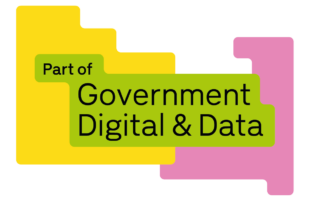

This blog series reflects on findings from a research project run by DBT in May 2025. It involved 15 organisations across the civil service, private sector, and charity sector. The project set out to explore the ambitions and challenges of developing a data strategy in a large organisations. It used a mix of workshops, surveys and desk research.
Each blog will explore a specific theme that emerged from the project. The first topic is 'Strategic ambitions' - what organisations hope to achieve through their data strategies, and how these ambitions shape their approach.
Introduction from Sian Thomas, DBT Chief Data Officer
Understanding data platforms is quite challenging. DBT created our original platform and catalogue to manage the UK's exit from the EU. This means that, in the context of such things, it is old. However, it is familiar and used by 2,000 DBT staff every month.
I am not sure there is ever a ‘right time’ to start a project like this. However, hopefully you will agree as we take you through the findings, it was certainly worthwhile. The insights we gained are invaluable and we are excited to share what we learned with you over the coming months.
I would like to extend my heartfelt thanks to all the organisations who shared their knowledge and experiences with us, and to all the individuals who engaged with us throughout this journey. Their contributions have been instrumental in making this project a success.
Strategic ambitions
One of our goals was to understand how DBT's ambition compares both to our peers and recognised leaders and innovators in data and AI. We wanted to explore their long-term vision and the importance of data to their digital transformation to help us reflect on our own aspirations.
We discovered that, as a Data and AI Services Portfolio in a UK government Department, we are not alone in our ambition to:
- use high-quality data to improve decision-making
- empower operational teams
- invest in infrastructure, governance, and emerging technologies
- align with national goals for economic growth and service efficiency
We saw common goals among the organisations we spoke to, both in government and the private sector including:
- upskilling of staff and building in-house data science capabilities
- de-centralisation of data ownership and management contrasted with the desire to standardise data architecture and improve data quality
- user-centred design of tailored services
- data accuracy, particularly with AI in mind, and data reuse to improve the user experience
- data interoperability and data sharing
- the need for modern digital and data infrastructure, and the challenge of dealing with legacy technologies
QUOTE: “Can we use what we already know – income, self-assessment – to auto populate and support customers?" HMRC participant
It was reassuring to note how familiar these challenges are for us at DBT. It also taught us:
- in a world where AI seems to be everywhere, investing in people is crucial. This can mean supporting staff to be data fluent (and current), upskilling to stay ahead in a rapidly evolving landscape, or acting on insights from colleagues and their real-world business relationships
- alignment is key. Regulatory alignment, but also data standardisation and aligning transformation programmes with longer term data strategies
- data personalisation and control go hand in hand. There is a recognised desire for individuals and entities to be able to both control their data and receive personalised experiences based on it
- the challenge of realising data’s potential to inform decisions, drive efficiency and unlock AI capabilities when the data landscape is fragmented, data access and governance are inconsistent, and data may be trapped in legacy systems
Overall, it was clear that the commitment to becoming more data-driven, digitally mature organisations is a common goal regardless of sector. It strikes the balance between getting the basics right and embracing innovation. DBT’s ambitions are firmly in sync with that. This shared strategic direction laid the foundation for the deeper themes explored throughout the project.
Keep an eye out for upcoming blogs in this series where we will delve into further themes that emerged, including data infrastructure, governance and processing.

